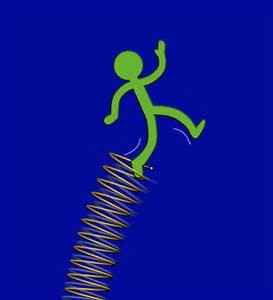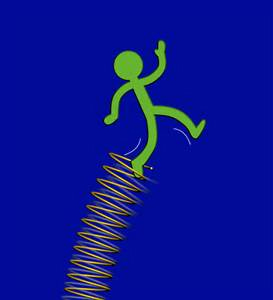 From our archives: Many of us grew up learning the 3 R’s throughout our education (reading, writing, and arithmetic). However, as technology changed and the needs of the workforce became more complex, educators realized the true skills necessary for success had changed as well. For the past decade, educators have been focused on teaching the four C’s that have been deemed 21st Century Workforce Skills. The 4 C’s necessary for workforce readiness are critical thinking, communication, collaboration, and creativity. Many organizations report that, despite higher education’s focus on the 4C’s, new graduates still lack basic proficiency in these areas.
From our archives: Many of us grew up learning the 3 R’s throughout our education (reading, writing, and arithmetic). However, as technology changed and the needs of the workforce became more complex, educators realized the true skills necessary for success had changed as well. For the past decade, educators have been focused on teaching the four C’s that have been deemed 21st Century Workforce Skills. The 4 C’s necessary for workforce readiness are critical thinking, communication, collaboration, and creativity. Many organizations report that, despite higher education’s focus on the 4C’s, new graduates still lack basic proficiency in these areas.
However, according to researchers and psychologists, we’re faced with a new skills shortage that may be even more devastating in the workplace—lack of resilience. Major universities across the country are reporting that emergency calls to school counseling centers have doubled over the last 5 years. While that could be perceived as a positive data point in the hopes that students who truly need help are getting it, what we are learning instead is that the calls are for frivolous incidents. For example, one counselor was called to discuss the traumatic experience of finding a mouse in an apartment. The residents of that apartment also called the police to help catch the mouse. Other counselors report meeting with students who can’t cope with being called a mean name or receiving a B on a test.
Faculty at universities have echoed the concern of counselors and added that they are afraid to assign poor grades due to the lack of resilience in students. One Director of Counseling had this to say:
“Our students are no different from what is being reported across the country on the state of late adolescence/early adulthood. There has been an increase in diagnosable mental health problems, but there has also been a decrease in the ability of many young people to manage the everyday bumps in the road of life. Whether we want it or not, these students are bringing their struggles to their teachers and others on campus who deal with students on a day-to-day basis. The lack of resilience is interfering with the academic mission of the University and is thwarting the emotional and personal development of students.”
These students are showing an inability to cope with, overcome, and learn from life’s challenges. Resilience is not an innate skill. It is learned and developed through life experiences. Many psychologists believe that the increase in helicopter parenting and the removal of healthy competition in childhood is to blame. These children have never learned to independently make mistakes and solve their own problems. They never learned to fail.
The impact of this delayed skill development isn’t just permeating the University level, though. Join any corporate recruiting discussion group, and you’ll hear tragic stories of parents showing up to their (adult) children’s interviews, filling out the application/onboarding forms for them, and calling the HR reps to find out why their child didn’t get the job. Can you imagine delivering a poor performance review and receiving a call from an angry parent? It’s happening! While that call may be irritating, the even worse outcome is that an employee who lacks resilience considers harming themselves after receiving negative feedback.
Like every other skill in the workplace, you must either select for it or train it. So, if you aren’t prepared to have Parent-Manager one-on-one meetings, it’s time to start thinking proactively about identifying candidates who have shown resilience. Has the individual failed at something in the past? How did he/she overcome the failure? What adversity have they experienced? What did they learn? Nothing teaches resilience and problem solving faster than making a mistake. When it comes to the skill of resiliency, perhaps we need to stop looking for the perfect resume, and start considering the candidates with a story to tell.

